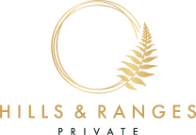Olinda, Victoria, Australia
Hills and Ranges Private Retreat
Verified
Verified
This provider’s information has been quality-checked by Recovery.com’s Research Team for accuracy and completeness, including center verification through appropriate third-party organizations.
Estimated Cash Pay Rate
The cost listed here (Call for rates) is an estimate of the cash pay price. Center pricing can vary based on program and length of stay. Contact the center for more information. Recovery.com strives for price transparency so you can make an informed decision.
About Hills and Ranges Private Retreat
At Hills & Ranges Private, they believe “recovery doesn't necessitate hospital beds and white lab coats.” They believe in providing a premium treatment service in 5-star surrounds, with the success of their clients being their success. Ongoing support extends beyond a client’s stay at HARP, and is a key component of their program offering.
HARP’s 5i curriculum consists of highly up-to-date educational information and science in the field of addiction and mental health. Specifically developed by their team of counsellors and clinicians, the 5i Recovery Process draws upon the globally recognised principles of the best abstinence-based programs and Cognitive Behavioural Therapy (CBT), combining them into a systematic five-module educational process that HARP can effectively apply to anyone’s life—no matter the severity of their addiction.
Luxurious 5-Star Treatment
Surrounded by the tranquil, lush nature of Mt. Dandenong, HARP Retreat welcomes just 9 clients at a time with a 2:1 staff-to-client ratio. They offer trauma-informed care and personalized treatment for CEOs, actors, athletes, and celebrities of all types. Hills and Ranges Private tailors their treatment plans to each client, using counselling, psychological care, and their patented 5i® Recovery Treatment Program. Many staff are in recovery themselves, creating an environment devoid of judgment and treatment that stems from empathy and real-world experience. They provide a structured environment that includes daily routines, chores, and responsibilities. Hills and Ranges Private believe that structure and accountability are essential for building self-discipline and healthy habits, which are critical for long-term recovery.
Individualized And Comprehensive Treatment
HARP has in-house doctors, nurses, psychologists, psychotherapists, counsellors and facilitators, who work with clients one-on-one and in small groups. They also have personal trainers, dietary therapists, health and wellness coaches, an art therapist, music therapist, and mindfulness, meditation and yoga instructors. In their aftercare program, accessible through their HARP app, clients check-in daily with a counselor and attend weekly group and 1:1 counselling sessions. Clients schedule calls, meetings, self care routines to form a robust exit plan. They also write out their short-term, medium-term, and long-term goals. Hills and Ranges Private’s personal trainer and dietician provide exercise and nutrition planning. As needed, HARP can integrate family or couples counseling.
Private Mt. Dandenong Retreat
Hills and Range Private’s secure facility offers an ideal recovery environment for professionals and other clientele seeking high-end, discreet addiction treatment with flexibility to tend to work needs. Their Mt. Dandenong retreat is just 45 minutes from Melbourne CBD and has private ensuite rooms. Their all-inclusive amenities include fine dining, meditation and mindfulness, personal training in a private gym, a day spa, equine therapy, and a jacuzzi spa. They also offer a plunge spa, movie theatre, and access to the surrounding waterfalls and hiking trails of the Dandenong Rainforest. Each aspect of treatment, from transport to aftercare, is carefully tailored to maintain anonymity during and after treatment.
Read More

Luxury rehab centers offer a unique blend of luxurious amenities and high-quality treatment. From private suites to gourmet dining, personal trainers to spa treatments, these facilities provide a high level of comfort and discretion.

Patented 5i Treatment
Hills and Ranges Private Retreat uses their 5i curriculum to treat addiction and mental health. It draws on abstinence-based treatment, cognitive behavioral therapy (CBT), dialectical behavioral therapy (DBT), and trauma-informed care. HARP Retreat uses this unique blend to address and heal the cause and symptoms of addiction.
Retreat-Style Luxury
Clients can enjoy private rooms at HARP Retreat. Their location in the heights of Mt. Dandenong provides privacy and a serene environment for restoration, with access to nearby waterfalls and walking trails. Private chefs cater to clients’ nutritional needs while HARP’s on-site spa offers more opportunities to relax. HARP also offers art and music therapy, and a private gym with on-site personal trainers.

Center Overview
Estimated Center Costs
The cost listed here (Call for rates), is an estimate of program cost. Center price can vary based on program and length of stay. Contact the center for more information. Recovery.com strives for price transparency so you can make an informed decision.
Older Adults
Addiction and mental health treatment caters to adults 55+ and the age-specific challenges that can come with recovery, wellness, and overall happiness.
Executives
Executive treatment programs typically directly support the needs of people who manage businesses and may provide flexible schedules and office space to allow work during treatment.
Young Adults
Emerging adults ages 18-25 receive treatment catered to the unique challenges of early adulthood, like college, risky behaviors, and vocational struggles.
LGBTQ+
Addiction and mental illnesses in the LGBTQ+ community must be treated with an affirming, safe, and relevant approach, which many centers provide.
Men and Women
Men and women attend treatment for addiction in a co-ed setting, going to therapy groups together to share experiences, struggles, and successes.
Midlife Adults
For adults ages 40+, treatment shifts to focus on the unique challenges, blocks, and risk factors of their age group, and unites peers in a similar community.
Professionals
Busy, high-ranking professionals get the personalized treatment they need with greater accommodations for work, privacy, and outside communication.
Treatment Focus
This center treats primary substance use disorders and co-occurring mental health conditions. Your treatment plan addresses each condition at once with personalized, compassionate care for comprehensive healing.

Care Options











Treatment
Specializations
Alcohol
Using alcohol as a coping mechanism, or drinking excessively throughout the week, signals an alcohol use disorder.
Benzodiazepines
Benzodiazepines are prescribed to treat anxiety and sleep issues. They are highly habit forming, and their abuse can cause mood changes and poor judgement.
Drug Addiction
Drug addiction is the excessive and repetitive use of substances, despite harmful consequences to a person's life, health, and relationships.
Gambling
Excessive, repetitive gambling causes financial and interpersonal problems. This addiction can interfere with work, friendships, and familial relationships.
Professionals
Busy, high-ranking professionals get the personalized treatment they need with greater accommodations for work, privacy, and outside communication.
Approaches
Evidence-Based
A combination of scientifically rooted therapies and treatments make up evidence-based care, defined by their measured and proven results.
Experiential
Expressive tools and therapies help patients process past situations, learn more about themselves, and find healing through action.
Holistic
A non-medicinal, wellness-focused approach that aims to align the mind, body, and spirit for deep and lasting healing.
Individual Treatment
Individual care meets the needs of each patient, using personalized treatment to provide them the most relevant care and greatest chance of success.
Therapies
1-on-1 Counseling
Patient and therapist meet 1-on-1 to work through difficult emotions and behavioral challenges in a personal, private setting.
Meditation & Mindfulness
A practiced state of mind that brings patients to the present. It allows them to become fully aware of themselves, their feelings, and the present moment.
Play Therapy
This approach is commonly used with children. It incorporates elements of play and self-expression, like boardgames, finger painting, dolls, and blocks.
Trauma-Specific Therapy
This form of talk therapy addresses any childhood trauma at the root of a patient's current diagnosis.
Online Therapy
Patients can connect with a therapist via videochat, messaging, email, or phone. Remote therapy makes treatment more accessible.
Rational Emotive Behavior Therapy
A type of cognitive therapy that identifies negative self-defeating thoughts and behaviors, rewriting beliefs to be positive, empowering, and present.
Mindfulness Therapy
This ancient practice can be mental, emotional, and even spiritual. In meditation, you focus your attention on the present moment without judgement.
Adventure Therapy
This experiential approach uses the physical and emotional challenges of outdoor activities as tools for personal growth.
Conditions We Treat
Pornography Addiction
A person with a porn addiction is emotionally dependent on pornography to the point that it interferes with their daily life and relationships.
Anger
Although anger itself isn't a disorder, it can get out of hand. If this feeling interferes with your relationships and daily functioning, treatment can help.
Anxiety
Anxiety is a common mental health condition that can include excessive worry, panic attacks, physical tension, and increased blood pressure.
Burnout
Burnout entails mental and physical exhaustion, and leads to a severe lack of fulfillment. This condition is often caused by overwork.
Depression
Symptoms of depression may include fatigue, a sense of numbness, and loss of interest in activities. This condition can range from mild to severe.
Eating Disorders
An eating disorder is a long-term pattern of unhealthy behavior relating to food. Most people with eating disorders have a distorted self-image.
Gambling
Excessive, repetitive gambling causes financial and interpersonal problems. This addiction can interfere with work, friendships, and familial relationships.
Gaming
Compulsive gaming is most often a problem for children and teens. The disorder can affect physical health, sleep, and the ability to focus at school.
Internet Addiction
Internet addiction is common among children teens. This compulsive disorder can damage relationships, school performance, sleep habits, and physical health.
Obsessive Compulsive Disorder (OCD)
OCD is characterized by intrusive and distressing thoughts that drive repetitive behaviors. This pattern disrupts daily life and relationships.
Substances We Treat
Alcohol
Using alcohol as a coping mechanism, or drinking excessively throughout the week, signals an alcohol use disorder.
Benzodiazepines
Benzodiazepines are prescribed to treat anxiety and sleep issues. They are highly habit forming, and their abuse can cause mood changes and poor judgement.
Co-Occurring Disorders
A person with multiple mental health diagnoses, such as addiction and depression, has co-occurring disorders also called dual diagnosis.
Cocaine
Cocaine is a stimulant with euphoric effects. Agitation, muscle ticks, psychosis, and heart issues are common symptoms of cocaine abuse.
Drug Addiction
Drug addiction is the excessive and repetitive use of substances, despite harmful consequences to a person's life, health, and relationships.
Ecstasy
Ecstasy is a stimulant that causes intense euphoria and heightened awareness. Abuse of this drug can trigger depression, insomnia, and memory problems.
Heroin
Heroin is a highly addictive and illegal opioid. It can cause insomnia, collapsed veins, heart issues, and additional mental health issues.
Psychedelics
Hallucinogenic drugs—like LSD—cause euphoria and increased sensory experiences. When abused, they can lead to depression and psychosis.
Methamphetamine
Methamphetamine, or meth, increases energy, agitation, and paranoia. Long-term use can result in severe physical and mental health issues.
Aftercare
Experience
Personal Amenities
Amenities
Special Considerations
Center Pets
Addiction and mental health facilities with pets allow patients to interact with friendly dogs, cats, horses, and in some cases, even dolphins.
Executive Program
Addiction and mental health treatment for executives typically involves high discretion, greater technology access, and more private, 1-on-1 care.
Flexible technology policies
Centers with flexible technology policies allow professionals to stay in touch with work and give patients a greater sense of connection and normalcy.
Gender-specific groups
Patients in gender-specific groups gain the opportunity to discuss challenges unique to their gender in a comfortable, safe setting conducive to healing.
Activities
Yoga
Yoga is both a physical and spiritual practice. It includes a flow of movement, breathing techniques, and meditation.
Off-Site Activities
Off-Site Amenities
Professional Staff

Donna Sullivan
Registered Nurse
RN, BA, Certificate of Addictive Behaviours

Philip
Head Psychologist

Dr. Yangyang Liu
Doctor
MD

Dr. Maxwell
Doctor
View More Team Members
We love hearing about your treatment experience
Help individuals and families seeking treatment by sharing your first-hand experience with this treatment provider. Review Guidelines.


























